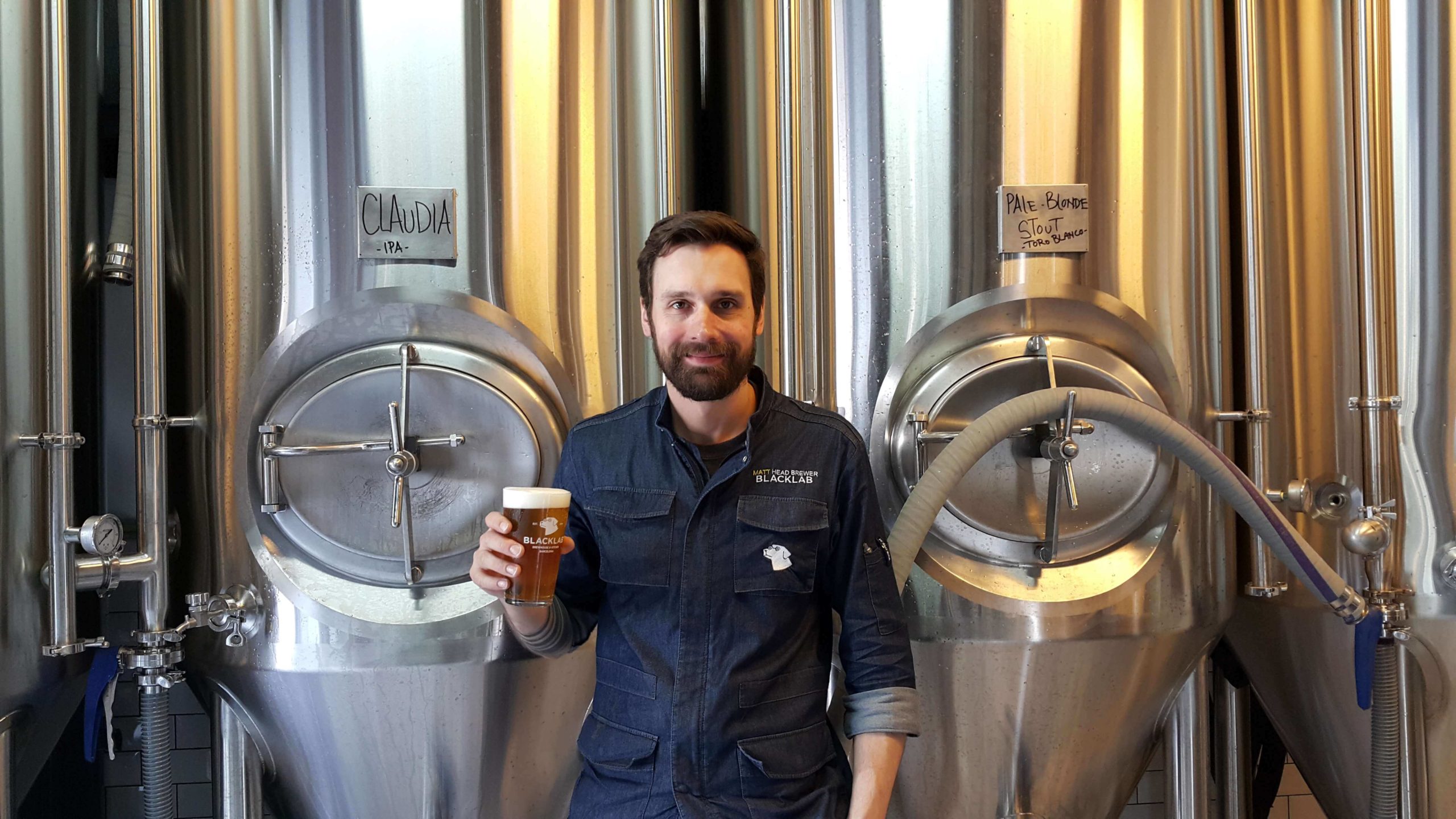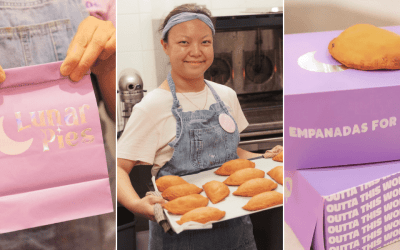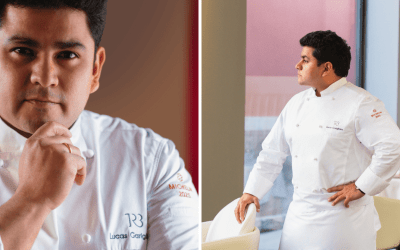Are you curious about what it takes to become a brewmaster for a living?
Career paths in hospitality can be exciting and unpredictable no matter which sector you’re in. Matt Boder knows this first hand. He’s currently the owner and brewmaster for BlackLab Brewhouse & Kitchen in Barcelona, Spain. But it all started 15 years before, making homemade beer in his bedroom back in the midwestern United States.
Hosco recently caught up with Matt to have a chat about how he went from making beer at home, to owning his own brewpub halfway across the world.
So, tell us a little bit about how you got your start in the world of beer
I started brewing at home a long time ago, back in Minnesota in the US, just because I loved beer.
Craft beer was starting to become a real movement at that time. I think the first beer I brewed was a red ale or something. It was terrible, but I really loved the process so I started getting more into brewing at home with my friends.
Maybe in the US I wouldn’t have become a professional brewer because the competition is fierce and there are a lot of talented people. But I’m in Spain, and when I moved here 10 years ago, craft beer wasn’t really a thing.
So when my wife and I decided to move to Barcelona from Chicago, a big part of the reason was to open an American-style brewpub. I knew how to make the beer so I was obviously going to be in charge of that and she was going to run the other side of the business.
So that was when I transitioned from home brewing into being a professional brewer. My first professional brewing job was actually opening my own brewery with BlackLab. But, I spent years before that gaining knowledge and skills at home. Developing processes, understanding the variables, learning about ingredients–it took years for me to be able to make a truly great beer.
What kind of education or experience does someone need to become a brewmaster?
Well, the main thing is you just need to understand the processes and the chemistry or biology at play while you are brewing a beer.
For me, I spent 15 years brewing at home before moving over to Barcelona. It started out as a small hobby that eventually took over all of the empty space in my house. So that’s where I got my education and experience. Eventually, I was able to start my own place.
But, that’s not realistic for everyone. These days it’s a solid career path and the competition is fierce so you can actually go to school to become a head brewer. When people ask me, I tell them to go to a two year school or course. It will give them an understanding of everything much faster than 15 years of trial and error.
Other than that, you have to like working with your hands, getting wet or dirty, and cleaning things. It’s physical labor so you have to be ready for that side of it.
But it also has a cerebral, scientific side. Yeast is vital to the brewing process and it’s this temperamental single cell fungus. It’s a living thing. You need to know how to feed it properly and keep it alive so you are able to use it.
So you need to understand a bit of microbiology. Chemistry, as well. You need to know about water profiles and how your water will interact with the malt and hops you’re using.
Why is brewing beer more like baking than it is cooking?
I like to compare brewing beer to other culinary fields. It’s tempting to use the metaphor of a chef because they have such a strong image as artists.
But, honestly, brewing beer is more like being a baker than it is a cook. When you cook, you can improvise and add things to a dish midway to adjust the flavor profile.
You can’t really do that with baking and brewing. It’s much more of a science. You have to be very specific about the process. You need to measure out all ingredients to the exact amount and do all sorts of calculations before you begin. Once the cake is in the oven or the beer is in the fermentor, there’s not a lot you can do but just sit and wait.
So, you really have to know your formulas, recipes, and processes in order to make sure the final product is going to turn out how you intended. You can’t really add salt, acid, or heat after the fact to adjust the flavor profile like a chef might do. You have to be precise so you’re confident you’ve done everything correctly at the beginning of the brewing process.
Baking and brewing are both more about making sure the conditions are correct for the proper chemical reactions to take place. You have to make sure the quantities for all the ingredients are correct and proportionate, temperatures must be exact, and timing is everything. I’ve always got a timer or alarm of some sort that I’m keeping an eye on.
What’s it like owning and operating your own brewpub?
Honestly, it can be a bit chaotic.
We brew all of our beer on-site at our brewpub. So sometimes I will be brewing a beer then it gets really busy in the pub and I’ll have to come out of the brewery to jump behind the bar and help out.
I love being behind the bar and pouring my beer for people but when it clashes with the brewing process, it can be stressful. Even if I have to step in and help, I’m always keeping track of my timers so I can run back into the brewery when I need to.
One of my favorite things about owning my own brewpub and making our beer on-site is that I can see how people feel about the beer first hand. It’s really special to be able to make a beer and then watch people enjoy it in real time.
It also gives me the opportunity to talk to my customers and get their feedback. Getting direct feedback like that can really help you understand what works and why so you can continue putting out beer that people go crazy for.
How has the public for BlackLab evolved over the years?
Well, when we first started here in Barcelona, it was mostly expats and tourists that came to drink. Craft beer hadn’t really exploded in Europe yet so Spanish people didn’t really know what to make of it.
We have a big terrace on a busy street near the beach so that helps draw people in. Whenever someone sits down at our pub, we always ask if they’re familiar with craft beer. If not, we take the opportunity to educate them a little bit so they understand what is on offer.
But now that we’ve been here for nearly a decade and craft beer is becoming more and more common, our demographic has changed.
We do a brewery tour every Saturday. For years, only expats or tourists came so it was always done in English. But, over the last five years that has completely switched. Now, the tours are mostly attended by locals who are interested in understanding more about the process of making craft beer.
I don’t even remember the last time I gave the tour in English so that’s been a significant shift. Plus, it helps me practice my Spanish.
What advice would you give to someone who wants to become a brewmaster?
My first piece of advice would be to invest in a small set up and start brewing your own beer at home. This will give you a chance to become familiar with the process, start learning about ingredients, and understand the science behind it all. You’ll be able to make and learn from mistakes on a small scale with much less risk.
My second piece of advice would be to try to find a job at a brewery, pub, or beer bar as early as you can. This will give you a clear idea of what the industry will be like. You’ll quickly learn if you are truly interested in it and understand what type of skills, personality, and knowledge you’ll need to pursue a career in the craft beer world.
As I said before, brewing beer is a physically demanding job so you’ll also be able to see if you can handle hauling heavy kegs and equipment all day while constantly getting wet and dirty in the process. It’s definitely not for everybody but I love that aspect of it as well.
The third piece of advice would be to never stop studying. You should always be researching trends, reading books about brewing, and learning as much as possible so you can stay on the cutting edge.
What is your work philosophy?
Always, safety first. We work with hot water, boling sugars, and all sorts of things that can be dangerous if you’re not careful. I wear steel toed boots and long pants at all times.
If you work in an industrial setting like a brewery, safety always has to be a primary concern. Everybody should leave work in the same shape they came in. As the owner and head brewer, it’s up to me to lead by example and set the tone for safety.
What makes working as a head brewer so exciting for you?
The greatest thing for me is interacting with the customers. It never gets old working hard on a recipe for a beer and then getting to see people enjoy it with their friends. Beer is an intimate thing so knowing that I can connect with people through a pint glass is really a special feeling.
If you had to describe your love of the hospitality industry in one word, what would it be?
People!
The world of hospitality is big and includes everything from professional wine experts to beer gurus. With so many different career paths to choose from, you’re bound to find one that's a good fit for you. At Hosco, we have hundreds of open hospitality jobs for you to apply for, so check out the current listing of available positions to find your dream job today.




